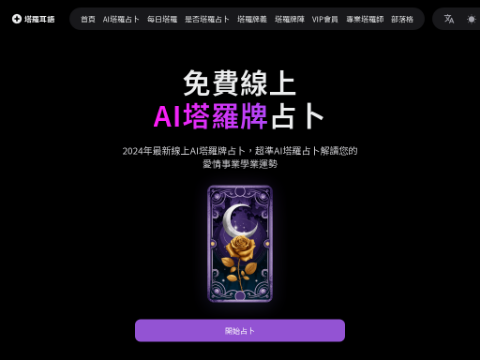The introduction of ChatGPT Search marks a significant leap in artificial intelligence, offering a groundbreaking online search experience. This innovative tool seamlessly combines ChatGPT's conversational abilities with the vast information available on the web, resulting in smooth and user-friendly searches. Unlike conventional search engines that overwhelm users with numerous links, OpenAI's GPT Search delivers concise and direct answers, featuring a clear and minimalist interface.
Visualizing online searches that are as effortless and natural as speaking to a companion, ChatGPT's real-time search brings this concept to life. By blending the conversational strengths of ChatGPT with comprehensive internet data, it offers a smooth and user-friendly search journey. In contrast to traditional search engines that inundate users with excessive links and advertisements, GPT Search provides straightforward and succinct answers, ensuring that your information gathering is both effective and pleasant.
The main features of ChatGPT Search encompass:
- • Natural language processing for more intuitive queries;
- • Real-time information updates with reliable sources;
- • Contextual understanding to deliver more relevant responses;
- • Capability to ask follow-up questions for deeper exploration of topics.
By using ChatGPT's real-time search, you'll experience its proficiency in understanding context and delivering comprehensive answers. This progression goes beyond traditional keyword-focused search engines by saving time and enriching your learning and information gathering processes.
During a recent Reddit AMA, Sam Altman, CEO of OpenAI, shared invaluable perspectives on the future direction of AI technology. Although he confirmed there are no immediate plans for a GPT-5 release, he indicated that current models would receive substantial updates and enhancements.
Altman highlighted a notably compelling aspect: the significant impact AI assistants can have on the economy. He elaborated that these AI assistants have the capability to revolutionize how different sectors manage complex tasks. Envision AI systems that not only handle extensive data but also make informed decisions, learn from their results, and refine strategies, all while working alongside human experts.
However, Altman also discussed the challenges facing AI development:
- • Reducing AI hallucinations (erroneous or nonsensical outputs);
- • Enhancing the reliability and consistency of AI responses;
- • Developing more robust benchmarking methods;
- • Ensuring AI systems align with human values and ethics.
Among these, the significance of benchmarking is particularly noteworthy. Altman emphasized the importance of creating comprehensive tests to accurately assess AI performance. These benchmarks serve as essential milestones, aiding developers in identifying areas for improvement and ensuring AI systems meet increasingly stringent standards.
The introduction of Simple Bench represents a major breakthrough in AI evaluation. This new benchmarking tool focuses on assessing AI models' performance in basic reasoning tasks, offering a clear perspective for comparing AI capabilities with those of humans.
The design goals of Simple Bench include:
- • Assessing AI's logical reasoning abilities;
- • Testing comprehension and problem-solving skills;
- • Measuring the consistency of AI responses;
- • Identifying areas where AI models need improvement.
By concentrating on straightforward reasoning tasks, Simple Bench delivers a transparent view of AI's current strengths and limitations. This clarity is crucial for enhancing public understanding and trust in AI technology. For developers, Simple Bench serves as a valuable tool to refine AI models, ensuring they meet the evolving needs of users across various applications.
Furthermore, topics like Sam Altman's AMA and real-time search have garnered significant attention. AI technology is rapidly transforming the landscape of entrepreneurship and productivity. By automating routine and time-consuming tasks, AI enables individuals to focus on innovation, strategic planning, and creative problem-solving. This shift not only boosts personal productivity but also drives broader economic growth by making businesses operate more efficiently and effectively.
As AI models continue to advance, their applications in business environments are expanding. From predictive analytics to personalized customer experiences, AI offers entrepreneurs new tools to gain a competitive edge in the market. However, careful integration of AI is crucial to ensure that AI-generated content and decisions are accurate, reliable, and aligned with business values.
From ChatGPT Search to insights shared by industry leaders like Sam Altman, the field is highlighted by its dynamic and exciting nature. As AI models become increasingly sophisticated, their impact across social and economic sectors will continue to grow.
However, great power comes with significant responsibility. Addressing challenges related to AI reliability, information verification, and ethical considerations is essential to ensure these technologies benefit society as a whole. Benchmarking tools like Simple Bench and a continued focus on improvements will play crucial roles in shaping the future of AI technology.
Looking ahead, several key trends are likely to define the development of AI technology:
- • AI will be more extensively integrated into everyday devices and services;
- • Natural language processing and generation will become more advanced;
- • AI's ability to comprehend and respond to context will continually improve;
- • Explainable AI will receive greater emphasis to build trust and transparency.
The future of AI technology holds exciting and remarkable promises. By staying informed and critically evaluating these developments, you can responsibly harness AI's powerful capabilities while addressing its associated challenges.








